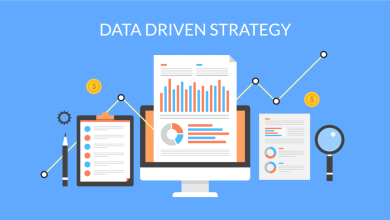
Marketing has never been more competitive—or more complex. Audiences are scattered across countless platforms, trends change overnight, and campaigns need to deliver results faster than ever. Traditional marketing tactics can’t keep up.
That’s where Artificial Intelligence (AI) comes in.
AI is completely reshaping how marketing agencies operate. From automating repetitive tasks to delivering razor-sharp insights, AI is helping agencies run smarter campaigns and achieve results that were once out of reach. Imagine launching hyper-personalized ads, tracking performance in real-time, and adjusting strategies instantly—all without burning out your team.
In this article, we’ll explore how AI is streamlining marketing campaigns and driving real results. Whether it’s creating content, targeting audiences, or maximizing ROI, AI is transforming every stage of the marketing process.
Ready to see how your agency can lead the charge? Let’s dive in.
The Rise of AI in Marketing
Artificial intelligence is no longer some distant concept from Sci-Fi movies — it’s here and actively reshaping how marketing agencies operate. From automating repetitive tasks to delivering sharper insights, integration of AI is essential to stay competitive.
Here are a few examples:
- Machine learning — Analyzes large datasets to identify trends and patterns, guiding smarter marketing decisions.
- Natural Language Processing (NLP) —Powers chatbots, voice search, and personalized content to improve customer engagement.
- Predictive analytics — Forecasts consumer behavior, allowing agencies to fine-tune campaigns before launch.
So, embracing AI at this point means your marketing strategies are faster, sharper, and more effective.
Automating Repetitive Tasks to Save Time
Marketing agencies manage countless tasks daily, many of which are repetitive—think data entry, performance reporting, and scheduling. While necessary, these tasks drain time and energy that could be spent on strategy and creativity. This is where AI steps in.
AI-powered tools can automate these routine processes with precision. For example:
- Content calendars: AI can plan, schedule, and even suggest optimal posting times for social media.
- Automated email marketing: Tools automatically segment audiences, personalize emails, and track performance.
- Reporting: AI compiles performance reports in real-time, cutting hours of manual analysis.
Enhancing Data-Driven Decision-Making
In marketing, guessing is no longer an option. Agencies need solid data to make smart decisions, and AI is the tool that turns mountains of information into actionable insights.
AI collects and analyzes customer data at a scale that humans simply can’t match. It identifies patterns in customer behavior, tracks campaign performance, and even pinpoints the best times to engage with audiences.
Predictive analytics takes this a step further by forecasting market trends and consumer behavior. Instead of reacting to changes, agencies can anticipate what’s coming and adjust their strategies ahead of time. Imagine knowing which products will be in demand next season or which audience segment is ready to convert—AI makes that possible.
But data-driven decision-making isn’t just about understanding customers. It’s also about improving internal operations.
AI tools offer deep insights into how teams allocate their time and resources. Pairing these insights with other tools, like the ones designed to calculate billable hours, ensures agencies maintain accurate billing and optimize workload distribution. When agencies consistently calculate billable hours, they can better assess project profitability and make smarter decisions about resource management. This seamless blend of AI-driven data analysis and precise billable hours tracking allows agencies to operate more efficiently and drive stronger results for clients.
AI-Powered Content Creation and Optimization
Content creation is essential for marketing success, but it can be time-consuming.
AI tools are changing that by quickly and efficiently generating blog posts, social media captions, and ad copy. These tools analyze data to produce content that aligns with the brand voice and engages the right audience.
AI also simplifies SEO by handling keyword research, competitor analysis, and content recommendations, helping agencies create content that ranks well and reaches more people.
Still, human creativity is irreplaceable. The best results come from combining AI’s speed and data-driven insights with human storytelling and strategy. This balance leads to smarter, faster content that truly resonates.
Leveraging AI-Powered SaaS Tools for Scalable Marketing
The combination of Artificial Intelligence (AI) and SaaS development is transforming marketing agencies’ operations.
SaaS platforms offer cloud-based tools that eliminate the need for costly infrastructure. These platforms give agencies access to powerful marketing solutions that can scale with their needs. When powered by AI, these tools become even more effective, automating tasks, delivering data-driven insights, and personalizing customer experiences.
To stay competitive, agencies must develop a strong SaaS marketing strategy that fully leverages AI-driven tools. Effective SaaS marketing strategies streamline workflows, improve customer targeting, and maximize ROI. By focusing on scalable solutions, marketing teams can adapt quickly to industry changes and drive consistent growth.
The adoption of AI in marketing has accelerated rapidly in recent years, and the trend shows no signs of slowing down. The graph below highlights how marketing agencies have increasingly embraced AI technologies to stay ahead of the curve.

Data Sources: MegaLeads, Influencer Marketing Hub, Statista
Improving Customer Engagement with AI Chatbots
AI chatbots have quickly become a must-have for marketing agencies looking to boost customer engagement. These intelligent tools provide 24/7 support, answering questions, guiding users, and solving problems instantly—no more leaving customers waiting for business hours.
Chatbots do more than just handle FAQs. They actively assist with lead generation by engaging visitors, collecting contact information, and even recommending products or services. Conversational AI personalizes interactions, making customers feel understood and valued.
The result? Faster response times, better customer experiences, and stronger client satisfaction. This ongoing engagement builds trust and improves customer retention, giving agencies a powerful edge in building lasting relationships.
Streamlining Campaign Performance Tracking
Tracking the success of marketing campaigns can be overwhelming without the right tools. AI-powered dashboards make this process seamless by providing real-time analytics and clear performance insights. Agencies can instantly see which campaigns are thriving and which need adjustments, allowing for quicker, data-driven decisions that maximize results.
One powerful way to enhance campaign tracking is to integrate tools like a free QR code generator. Marketers can create custom QR codes for print materials, packaging, or in-store displays, making it easy to track offline-to-online engagement. Using a free QR code generator allows agencies to monitor how customers interact with campaigns in real time, offering valuable data on customer behavior and campaign reach. This data helps refine marketing strategies and improve ROI.
For example, an e-commerce brand used AI to monitor ad performance and noticed a drop in conversions on one platform. With real-time insights, they quickly shifted their ad spend to higher-performing channels, resulting in a 25% boost in ROI. This kind of agility wouldn’t be possible without AI’s ability to track and optimize campaigns on the fly.
The Future of AI in Marketing Agencies
AI is no longer a competitive advantage — it’s becoming the foundation of modern marketing. The next wave of innovation is already here, with generative AI creating personalized content at scale, voice search optimization redefining SEO strategies, and hyper-personalization delivering marketing experiences tailored to individual customers.
To stay ahead, agencies must go beyond simply using AI tools—they need to fully integrate AI into their core strategies. This means adopting AI-driven platforms that automate complex tasks, using predictive analytics to anticipate customer behavior, and constantly refining campaigns in real time. Agencies that hesitate risk falling behind, while those that embrace AI will lead with smarter, faster, and more effective marketing.
But AI can’t replace creative thinking. Marketers who succeed in this new era will combine data-driven insights with bold ideas and emotional storytelling. AI handles the data; marketers bring the strategy and creativity.
The future belongs to agencies that understand how to use AI not as a shortcut but as a tool to amplify their impact. Those who adapt now will shape the industry for years to come.




